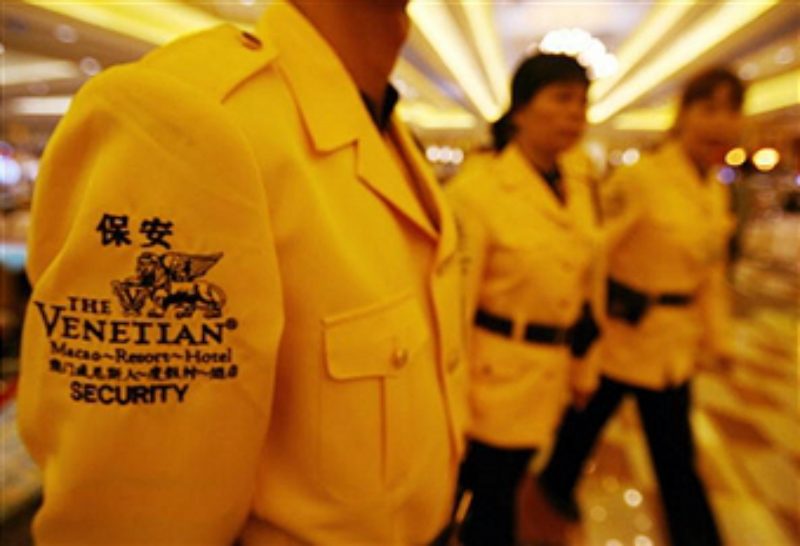Macau Casinos Remain Vulnerable to Terrorism and Organized Crime, Security Assessment Findings Assert
Posted on: January 5, 2018, 04:00h.
Last updated on: January 5, 2018, 11:50h.
Macau casinos won $33 billion last year, a 19.1 percent increase on 2016 and the enclave’s first annual gain since 2013. With the millions of visitors that venture to China’s special gaming zone each year, the risk of both terrorism and organized crime is an ever-present and paramount concern.

A new study from Steve Vickers and Associates, a Hong Kong risk mitigation, corporate intelligence, and security firm, finds that the region’s largest buildings and casino resorts remain vulnerable to terrorism and triads.
Writing in its 2018 Asia Risk Assessment, Vickers states, “The involvement of triad societies and organized crime in the gaming sector shows no sign of diminishing. Rather, it is institutionalized.”
The firm also opined that the threat of terrorism remains high. Pointing to the 2017 Resorts World Manila attack in the Philippines that saw 37 die and the Las Vegas shooting that killed 58 people, Vickers says many Macau casinos remain soft targets.
Combatting Terror
Casino industry executives were well aware prior to 2017 that their properties could be targeted by terrorists. Unfortunately, last year was a particularly horrific one for the industry and its patrons, globally.
Resorts World Manila came first. Around midnight on June 2, a lone gunman, later found to be a gambler in debt, set fire to gambling tables and slot machines after pouring gas on them. Patrons were trapped on a second floor with no exit, with 36 employees and guests found dead. The perpetrator later killed himself.
Then on October 1, perched from the 32nd floor of Mandalay Bay, another solo killer began firing at concertgoers across the Strip attending the Route 91 Harvest music festival. When the 10-minute shooting rampage stopped, 58 people were dead and more than 500 more injured.
To prevent such loss of life in Macau, leaders of the Special Administrative Region (MSAR) announced in their annual policy address that casino resorts will soon undergo simulated terrorist attacks and crisis drills. The goal is to develop improved “systems with more proactive strategies to optimize law enforcement and administrative deployment.”
Disrupting Syndicates
Vickers’ report also exposed a licensing loophole in regards to VIP junket companies that cater to high rollers.
While junkets are inspected by the Macau government, their so-called “collaborators,” individuals who are often involved in loaning clients money and collecting on outstanding debts, are largely unregulated. And that’s often where triads operate, according to Vickers.
Late last year, Macau Chief Executive Chui Sai On revealed that a thorough review of the entire casino industry will be performed ahead of the start of the licensing renewal process, which begins in 2020. While few details have been revealed as to what changes, if any, might be implemented, the general opinion among gaming analysts is that more stringent regulations will be placed on junkets.
Chui said the changes “will perfect the laws and regulations governing the gaming industry.”
No comments yet